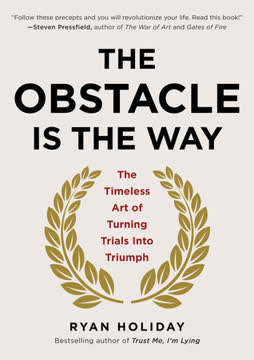Key Takeaways
1. Begin with genuine interest in others
You can make more friends in two months by becoming interested in other people than you can in two years by trying to get other people interested in you.
Authentic curiosity pays dividends. By taking a sincere interest in others, you create a foundation for meaningful relationships. This involves asking questions about their lives, experiences, and passions. People naturally gravitate towards those who show genuine care and attention.
- Ways to show interest:
- Ask open-ended questions
- Remember personal details
- Follow up on previous conversations
- Share relevant resources or connections
Developing this habit not only enriches your social interactions but also broadens your perspective and knowledge base. It's a win-win approach that fosters mutual understanding and respect.
2. Smile and remember names to win friends
Remember that a person's name is to that person the sweetest and most important sound in any language.
Names and smiles open doors. A warm, genuine smile is a universal language that communicates friendliness and approachability. Coupled with remembering and using people's names, it creates an immediate positive impression.
- Tips for remembering names:
- Repeat the name when introduced
- Associate the name with a distinctive feature
- Use the name in conversation
- Write it down if possible
This combination of a welcoming demeanor and personal recognition makes others feel valued and respected. It's a simple yet powerful way to build rapport and lay the groundwork for positive relationships in both personal and professional contexts.
3. Be a good listener and encourage others to talk
Listen first. Give your opponents a chance to talk. Let them finish. Do not resist, defend or debate. This only raises barriers. Try to build bridges of understanding.
Active listening builds trust. Being a good listener involves more than just staying quiet while others speak. It requires genuine engagement, asking thoughtful questions, and showing that you value the speaker's perspective. Encouraging others to talk about themselves and their interests creates a positive dynamic.
- Effective listening techniques:
- Maintain eye contact
- Use non-verbal cues (nodding, leaning in)
- Ask clarifying questions
- Paraphrase to confirm understanding
- Avoid interrupting or finishing sentences
By mastering the art of listening, you not only gain valuable insights but also make others feel heard and appreciated. This fosters deeper connections and more productive conversations.
4. Avoid arguments and admit mistakes gracefully
The only way to get the best of an argument is to avoid it.
Humility diffuses tension. Arguments often lead to frustration and damaged relationships, with neither party truly "winning." Instead of engaging in confrontations, focus on finding common ground and understanding different perspectives. When you make a mistake, admitting it quickly and emphatically can turn potential conflict into an opportunity for growth and mutual respect.
- Strategies to avoid arguments:
- Seek areas of agreement
- Acknowledge valid points
- Ask questions to understand
- Use "I" statements instead of accusations
- Suggest postponing the discussion if emotions are high
By choosing collaboration over confrontation, you create an environment where open dialogue and problem-solving can flourish.
5. Show respect for others' opinions and ideas
If you want to gather honey, don't kick over the beehive.
Respect breeds reciprocity. Showing genuine respect for others' opinions, even when they differ from your own, creates an atmosphere of openness and mutual understanding. This approach encourages others to be more receptive to your ideas and fosters a collaborative spirit.
- Ways to show respect:
- Use phrases like "I see your point" or "That's an interesting perspective"
- Ask for elaboration on their ideas
- Find merit in their position before presenting your own
- Avoid dismissive language or tone
By valuing diverse viewpoints, you not only expand your own understanding but also build stronger, more productive relationships in all areas of life.
6. Arouse enthusiasm by appealing to noble motives
Appeal to the nobler motives.
Inspire through ideals. People are more likely to be motivated by appeals to their higher aspirations and values than by self-interest alone. By framing requests or ideas in terms of larger principles or noble goals, you can inspire enthusiasm and commitment.
- Examples of noble motives:
- Personal growth and development
- Contributing to a greater cause
- Helping others or the community
- Achieving excellence or innovation
- Upholding important principles
When you align your proposals with these deeper motivations, you tap into a powerful source of energy and dedication. This approach not only achieves immediate goals but also builds a culture of purpose and shared values.
7. Give honest and sincere appreciation
I have yet to find the person, however great or exalted his station, who did not do better work and put forth greater effort under a spirit of approval than he would ever do under a spirit of criticism.
Genuine praise motivates. Honest appreciation is a powerful tool for influencing behavior and building positive relationships. Unlike empty flattery, sincere recognition of someone's efforts or qualities can inspire continued excellence and foster goodwill.
- Keys to effective appreciation:
- Be specific about what you're praising
- Explain why it matters or makes a difference
- Express it promptly
- Tailor it to the individual's preferences
- Make it proportional to the achievement
Regularly practicing sincere appreciation creates a positive environment where people feel valued and motivated to contribute their best efforts.
8. Make the other person feel important
The deepest principle in human nature is the craving to be appreciated.
Importance fuels engagement. Everyone has a fundamental desire to feel significant and valued. By consistently making others feel important through your words and actions, you create strong, positive relationships and motivate people to engage more fully with you and your ideas.
- Ways to make others feel important:
- Give undivided attention in conversations
- Seek and value their opinions
- Recognize their unique contributions
- Show genuine interest in their lives and work
- Offer sincere compliments
This principle, when applied consistently, can transform personal and professional relationships, creating a network of mutual respect and support.
9. Use questions instead of giving direct orders
A leader's job often includes changing your people's attitudes and behavior. Some suggestions to accomplish this: Begin with praise and honest appreciation. Call attention to people's mistakes indirectly. Talk about your own mistakes before criticizing the other person. Ask questions instead of giving direct orders.
Questions empower and engage. By asking questions instead of giving direct orders, you engage the other person's thinking process and allow them to take ownership of the solution. This approach fosters creativity, initiative, and a sense of participation.
- Benefits of using questions:
- Encourages critical thinking
- Demonstrates respect for others' expertise
- Increases buy-in and commitment
- Allows for unexpected insights and solutions
- Builds problem-solving skills in the team
Framing directives as questions not only achieves the desired outcome but also develops a more capable and engaged team in the long run.
10. Let others save face and praise every improvement
Let the other person save face.
Dignity preserves relationships. Allowing others to maintain their dignity, even when they're wrong or have made mistakes, is crucial for maintaining positive relationships. Coupled with praising every improvement, no matter how small, this approach encourages continued growth and cooperation.
- Strategies for saving face:
- Avoid public criticism
- Offer private, constructive feedback
- Focus on the issue, not the person
- Provide a graceful way out of difficult situations
By consistently applying these principles, you create an environment where people feel safe to take risks, admit mistakes, and strive for continuous improvement.
11. Dramatize your ideas for greater impact
This is the day of dramatization. Merely stating a truth isn't enough. The truth has to be made vivid, interesting, dramatic.
Vivid presentations persuade. In a world saturated with information, simply stating facts is often not enough to capture attention or inspire action. Dramatizing your ideas through storytelling, vivid imagery, or demonstrative actions can make them more memorable and persuasive.
- Techniques for dramatization:
- Use metaphors and analogies
- Share personal anecdotes
- Create visual aids or demonstrations
- Employ contrast for emphasis
- Engage multiple senses in your presentation
By making your ideas come alive, you increase their impact and make them more likely to be remembered and acted upon.
12. Throw down a challenge to inspire action
The way to get things done is to stimulate competition. I do not mean in a sordid, money-getting way, but in the desire to excel.
Challenges ignite motivation. People often rise to meet challenges that appeal to their desire for achievement and recognition. By framing tasks or goals as exciting challenges, you can tap into this natural motivation and inspire greater effort and creativity.
- Elements of effective challenges:
- Set clear, achievable goals
- Appeal to personal or team pride
- Offer recognition for success
- Make the process engaging or fun
- Provide necessary resources and support
When skillfully employed, challenges can transform routine tasks into exciting opportunities for growth and accomplishment, energizing individuals and teams to reach new heights.
Last updated:
Review Summary
How to Win Friends and Influence People receives mostly positive reviews, with an average rating of 4.49/5. Readers praise its timeless principles for improving social skills and relationships. Many find the historical anecdotes engaging and the advice practical. Some criticize the book for being outdated, repetitive, or potentially manipulative. Several reviewers note rereading the book multiple times and gaining new insights with each reading. Critics argue that some concepts are now common sense or may come across as insincere if not applied carefully.
Similar Books









Download PDF
Download EPUB
.epub digital book format is ideal for reading ebooks on phones, tablets, and e-readers.













